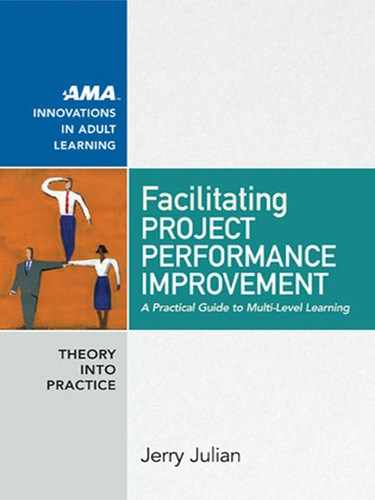American Management Association xiii
www.amanet.org
FOREWORD
Project work in many organizations today is “the new normal.” An up side
to project work is the opportunity for rich learning. Project teams form
a temporary community with a common focus even though members
may be spread around the world and often cross professional, functional,
and cultural boundaries. Project teams bring people together with diverse
backgrounds to achieve shared aims on common tasks under tight time-
lines—often in collaboration with customers and other stakeholders —in
ways that require innovation and knowledge sharing.
However, the conditions under which project teams work are challeng-
ing and turbulent, and organizations are not always prepared to change
the way they work when they become “projectized.” Learning in project
teams often requires coordination, alignment, and intentionality. Team
members learn by experimenting and using results to adjust their plans
and processes as they work.
But many project teams are not able to learn quickly in ways that not
only help them complete projects on time and under budget but that also
build knowledge, skills, and improvements for team members, project
groups, and the larger organization. And even when project teams do
learn, these insights, approaches, and competencies are not mined by the
organization to bene t work of other project teams.
Jerry Julian describes these di cult learning conditions as “red light
learning” and proceeds to show how an organization can instead engage
“green light learning.” This book will help readers who want to acceler-
ate project team learning and nd ways to leverage that learning across
boundaries within the organization. Julian introduces a multi- level learning
American Management Association
www.amanet.org
xiv Foreword
framework in which project and program managers can put re ection into
practical use before, during, and after work cycles. He introduces a com-
mon framework and shows how it can be used di erently to (1) improve
continuous learning and innovation
within teams, (2) strengthen e ective
process improvement
across teams, and (3) engage strategic learning at the
portfolio management level
across the organization.
Julian’s multi- level learning model is based on principles of lean manu-
facturing, agile development, continuous improvement, re ective learn-
ing from and through experience aimed at overcoming defensive routines,
communities of practice, and team and organizational learning. These
principles include (1) satisfying the customer, (2) eliminating waste,
(3) welcoming new insights, (4) delivering as fast as possible, (5) empow-
ering team learning, (6) seeing the whole, (7) using a third- party coach,
and (8) re ecting at multiple levels. Julian infuses this multi- level learning
model with insights from interviews with 20 Project Management O ce
leaders and six project managers from a variety of functional disciplines.
He also describes the new role of the multi- level learning coach in some
detail in Chapter 3 to help those who assume these functions better sup-
port their organizations in moving toward an adaptive, continuous system-
level learning approach.
As contributing editors, we hope you will appreciate this addition to
the Adult Learning Theory and Practice book series. We seek to showcase
practical frameworks, tools, and perspectives that you—as leaders and fa-
cilitators of learning in organizations—can use with some con dence be-
cause they are not just the latest fad, but are based on solid, research- based
understanding combined with the wisdom of experience. Some books in
the series emphasize structured learning approaches, e.g., training, educa-
tion, and development in classrooms and new virtual meeting and learn-
ing places. This book showcases learning- in- action that takes place on the
ground, integrated with work, and in less formal ways (though perhaps
intentional and designed). We are interested in supporting learning for
individuals, but also collective learning sustained in groups, communities
of practice or interest, and organizations.
We hope you enjoy and bene t from this volume, and we look forward
to your feedback and thoughts on other topics in this series.
Victoria J. Marsick
FACILITATING
PROJECT PERFORMANCE
IMPROVEMENT
This page intentionally left blank
..................Content has been hidden....................
You can't read the all page of ebook, please click here login for view all page.
